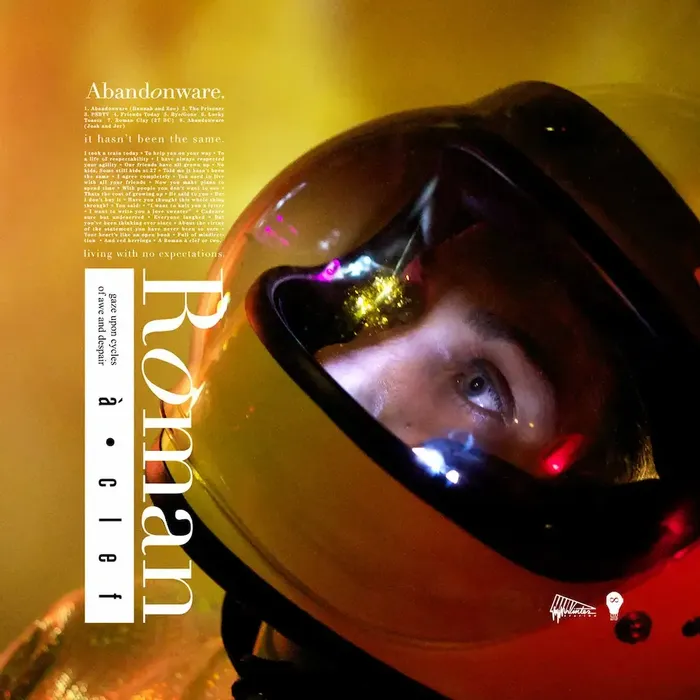Abandonware by Roman à Clef (Review)

When Robert Rackley introduced me to Roman à Clef, he described them as “Postfab Sprout.” Which, just to be clear, is no insult, because if you’re going sound like anyone, then it might as well be Paddy McAloon’s Prefab Sprout. And Steve McQueen-era Prefab Sprout, to be precise, when McAloon and his bandmates were creating such sophisti-pop gems as “Bonny,” “Appetite,” and “When Love Breaks Down.”
The trio of Ryan Newmyer and Jen Goma (A Sunny Day in Glasgow) and Kurt Feldman (Ice Choir) bear more than a passing resemblance to McAloon and Co. on songs like “The Prisoner” and “PSBTV.” Listen to them for more than a few seconds, and you’ll find yourself awash in glossy production, sterling guitars and lush synths, and Roman à Clef’s secret weapon: Goma’s airy voice, which, despite its too-delicate nature, still imbues lyrics like “Every time we touch the air/History is there/Dragging us back/Back down to the ground” with emotional heft.
It’s easy to get caught up in the band’s dazzling sound — there’s the gorgeous ’80s-esque production, of course, and I’m still trying to wrap my head around their delightfully kaleidoscopic take on ’90s pop that is “Bye/Gone,” replete with faux city pop funk — but it’d be a mistake to overlook their lyrics.
You might be tempted to dismiss the trio’s lyrical sentiments as the ironic musings of indie kids who think they’re cleverer by half than everyone else. (After all, they do rhyme “Quotidian thoughts” with “the Aughts.”) But like McAloon before them, the trio’s lyrics really are whip-smart even as they ring with honest heartache, chronicling modern malaise, the regrets inherent to growing up, and broken relationships. But with its exploration of nostalgia’s double-edged sword, “The Prisoner” hits me hardest.
At the song’s outset, they ask “Were you misty eyed/For the past?” and then spend the next four minutes revisiting childhood haunts and former flames, even an old tattoo, in search of a suitable answer. Near the song’s end, Goma coos “Perhaps you’d like to let it go/But there’s nothing else we know/Traces all lead back/All back to ourselves.” In light of their music’s own ultra-nostalgic quality, those lines almost feel like Roman à Clef’s manifesto. Rather than try to deny their influences, Newmyer, Goma, and Feldman have opted to fully embrace them. Why waste time and energy pretending otherwise? Of course, embracing nostalgia can be unhealthy if left unchecked, but it’s not inherently bad, especially when the result is a pop album as slick, sophisticated, and enjoyable as this one.
Given that it was released “way” back in 2015, Abandonware seems very much like a one-off project. Which, on the one hand, is disappointing, because who wouldn’t want more pop like this in their lives? On the other hand, that just makes Roman à Clef’s music feel all the more like a special and singular gem that, while obviously not unique or groundbreaking, still exists forever in its own liminal space, never to be repeated.